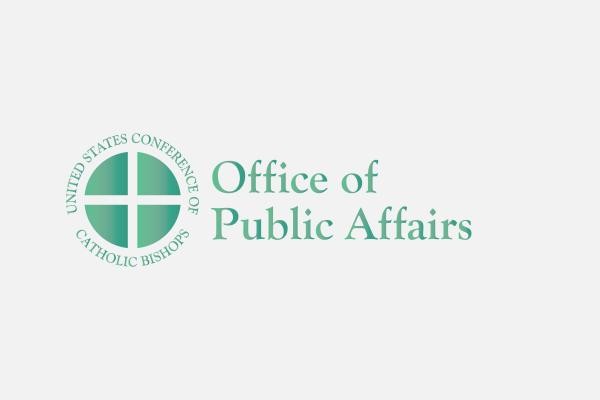Wide Range of Topics Discussed at 34th Meeting of Polish National Catholic-Roman Catholic Dialogue
WASHINGTON (May 28, 2002) – The 34th meeting of the Polish National Catholic-Roman Catholic Dialogue took place in Nashville, Tennessee, on May 15 and 16, 2002. The host was Bishop Edward U. Kmiec of the Roman Catholic Diocese of Nashville.
May 28, 2002
WASHINGTON (May 28, 2002) – The 34th meeting of the Polish National Catholic-Roman Catholic Dialogue took place in Nashville, Tennessee, on May 15 and 16, 2002. The host was Bishop Edward U. Kmiec of the Roman Catholic Diocese of Nashville. The meeting was co-chaired by Bishop James C. Timlin of the Roman Catholic Diocese of Scranton and Bishop Robert M. Nemkovich of the Western Diocese of the PNCC.
The meeting began with an examination of the ecumenical implications of the document Liturgiam Authenticam, issued in May 2001 by the Vatican's Congregation for Divine Worship. There was also a report on progress towards the publication of a second edition of Journeying Together in Christ which would highlight progress in the relations between the two churches since the publication of the first volume in 1990. The volume would include material from Cardinal Cassidy's visit to Scranton in 1993, Bishop Timlin's address on the occasion of the celebration of the PNCC's centenary in 1997, the application of canon 844.3 to the PNCC, and the major topics that have been discussed at the meetings during those years.
There was also a discussion of the continuing dialogue between Cardinals Walter Kasper and Joseph Ratzinger on the nature of the Church that has appeared in the pages of America magazine, as well as the Prolusio that Cardinal Kasper delivered at the November 2001 plenary meeting of the Pontifical Council for Promoting Christian Unity. This latter text provides an overview of the current state of ecumenical relations from the perspective of the Roman Catholic Church. The PNCC side found a number of elements in the text that provided hope and encouragement for the future of the dialogue.
The dialogue also took a close look at the establishment of an Apostolic Administration for the Union of St. John Mary Vianney in Campos, Brazil, in December 2001. This new structure, which reconciled a number of Catholics who left the communion of the Roman Catholic Church in reaction to the teachings of the Second Vatican Council, provides an example that could be taken into consideration in view of a future reconciliation between our churches. This will be studied further as a model of unity that respects the identity and particular traditions of the other group.
The members also considered the difficulties that have arisen in connection with recent revelations about the handling of cases of pedophilia by the clergy. There was a consensus that many issues raised by this problem concern all churches, and a solution needs to be found that both protects children and respects the rights of the accused.
On the evening of May 15, the group participated in a Taiz�-style evening prayer service in the Roman Catholic Cathedral of the Incarnation. Members found it a welcome opportunity to pray together and to engage in the "spiritual ecumenism" that is so important for the success of the dialogue.
The meeting began with an examination of the ecumenical implications of the document Liturgiam Authenticam, issued in May 2001 by the Vatican's Congregation for Divine Worship. There was also a report on progress towards the publication of a second edition of Journeying Together in Christ which would highlight progress in the relations between the two churches since the publication of the first volume in 1990. The volume would include material from Cardinal Cassidy's visit to Scranton in 1993, Bishop Timlin's address on the occasion of the celebration of the PNCC's centenary in 1997, the application of canon 844.3 to the PNCC, and the major topics that have been discussed at the meetings during those years.
There was also a discussion of the continuing dialogue between Cardinals Walter Kasper and Joseph Ratzinger on the nature of the Church that has appeared in the pages of America magazine, as well as the Prolusio that Cardinal Kasper delivered at the November 2001 plenary meeting of the Pontifical Council for Promoting Christian Unity. This latter text provides an overview of the current state of ecumenical relations from the perspective of the Roman Catholic Church. The PNCC side found a number of elements in the text that provided hope and encouragement for the future of the dialogue.
The dialogue also took a close look at the establishment of an Apostolic Administration for the Union of St. John Mary Vianney in Campos, Brazil, in December 2001. This new structure, which reconciled a number of Catholics who left the communion of the Roman Catholic Church in reaction to the teachings of the Second Vatican Council, provides an example that could be taken into consideration in view of a future reconciliation between our churches. This will be studied further as a model of unity that respects the identity and particular traditions of the other group.
The members also considered the difficulties that have arisen in connection with recent revelations about the handling of cases of pedophilia by the clergy. There was a consensus that many issues raised by this problem concern all churches, and a solution needs to be found that both protects children and respects the rights of the accused.
On the evening of May 15, the group participated in a Taiz�-style evening prayer service in the Roman Catholic Cathedral of the Incarnation. Members found it a welcome opportunity to pray together and to engage in the "spiritual ecumenism" that is so important for the success of the dialogue.

